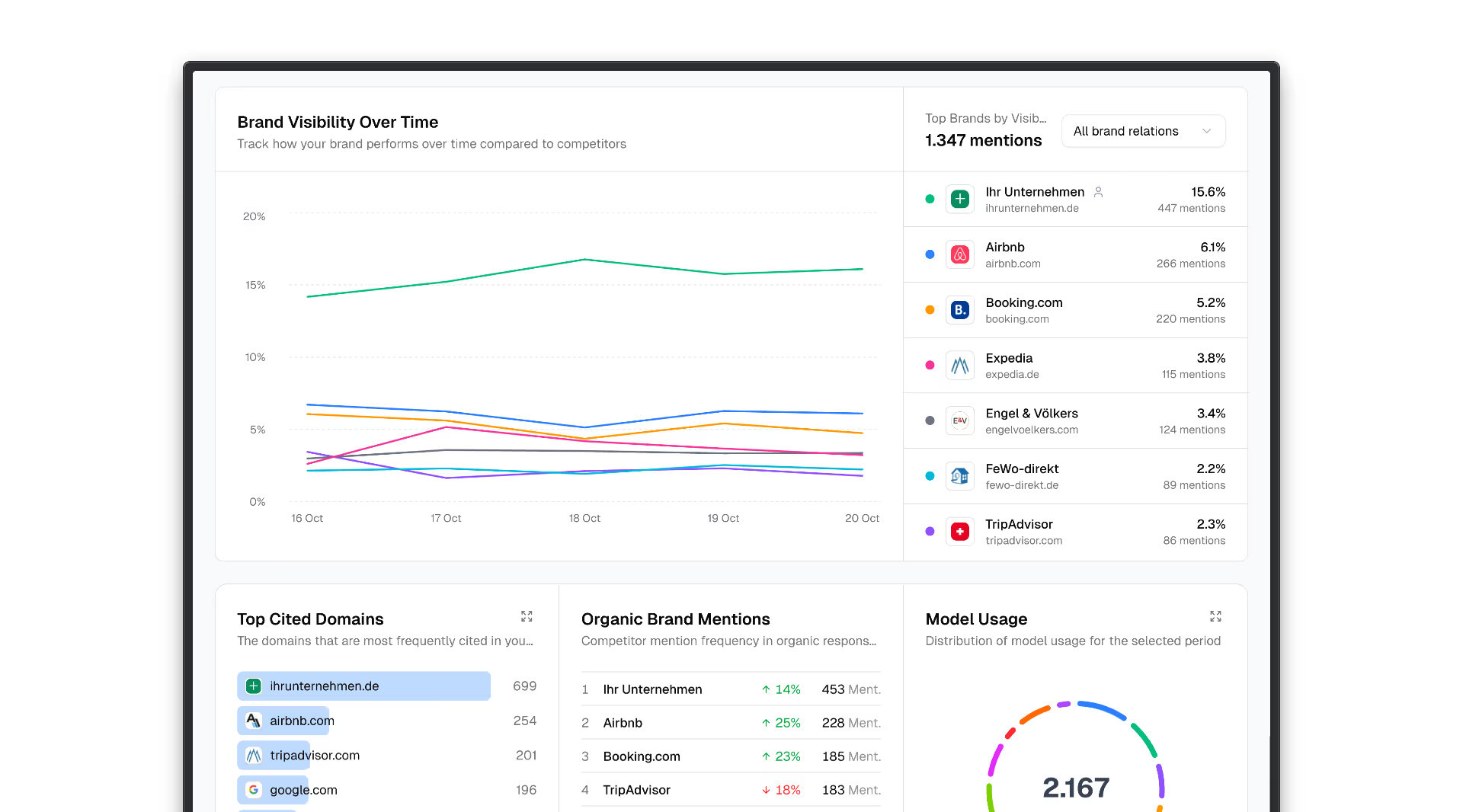In this article, we show Which SEO principles still apply in the AI eraWhat you should rethink — and how to align your strategy so that your content includes answers like those from ChatGPT with browsing, perplexity, or Gemini Can show up. Terms such as”Search Generative Experience“or”Zero-click search“Illustrate that search engines are increasingly acting as answer machines.
1. The New Reality: Visibility in Answers, Not in Rankings
For a long time, SEO was one thing in particular: a race for first place today, something else counts:
- AI systems generate direct answers Instead of link lists
- Content that is mentioned has won — the rest remains invisible
- Today, visibility means: Appear in Answers, Not on Search Results Pages
You can find out more about fundamental change in Part 1 of the series.
2. How AI search, LLMs and classic search engines differ
Anyone who wants to be visible in AI systems such as ChatGPT or Perplexity must understand how these systems differ from classic search engines. The following overview shows what is involved in AI Searches, LLMs and Classic search It all matters — from model type to optimizability:
| |
AI searches |
LLMs |
Traditional Search |
| AI models |
Google AIO, Perplexity, ChatGPT Search |
Claude, LLama, Grok, GPT-4o, OpenAI |
Google, Bing |
| Knowledge based on |
Search results & Internal knowledge base (LLM) |
Internal knowledge base (LLM) |
Indexed pages |
| How generation works |
LLM interprets prompts and adds search results as context based on type of prompt |
Prompts are processed from internal training data and knowledge and results are created |
Search engine shows result pages |
| How results are created |
Response in text with citation links |
Response in text |
Result links |
| What speed |
Fast |
Medium |
Fast |
| How much influence and optimization? |
Medium ability to influence, source links can help you to optimize faster |
Low ability to optimization, LLMO – needs time until retraining |
High ability to optimization, fast to react |
3. What is changing — and why keywords are no longer enough
Many classic SEO tactics don't work the way they used to:
- Questions replace keywords: “What is...”, “How does it work...”, “Why... ” (People Also Ask)
- Context beats density: A well-worded section is more relevant than ten times the correct keyword
- Technical readability Becomes a basic requirement (HTML structure, load time, mobile optimization)
- Backlinks lose weightWhen content is not formulated in a clear and trustworthy way
- Entities and Semantic Markup Support classification through AI
AI prefers content with clear context — Aleyda Solis
4. What remains — and even becomes more important
Despite all the changes, there are SEO basics that are more important than ever:
✅ Structure
- Clear heading hierarchy (H1—H3)
- Lists, Tables, Paragraphs with Focus
- Technically correct HTML (see MDN Web Docs)
- Structured content also helps for Featured Snippets
✅ Context
- One topic per page (Content hubs Are helpful)
- Strong internal link to Information architecture
- Semantically meaningful embedding of content with appropriate entities (e.g. Webflow, Schema.org, LLMs)
✅ Trust
- Author clearly identifiable (experience, expertise)
- Impressum, company profile, context visible (E-E-A-T)
- External Citations or Mentions Increase Relevance
How Perplexity described in a separate post, is the selection of sources increasingly based on Reliability, Clarity, and Relevance — Not on popularity or domain strength.
| SEO – Then |
SEO – In the Age of AI |
| Keyword density |
Context & clarity |
| Top 10 rankings |
Mention in AI-generated answers |
| Backlink strategies |
Trustworthy content & transparency |
| On-page optimization for SERP snippets |
Answer logic & question structure |
| Domain authority |
Topical relevance & source clarity |
| SEO copy for search engines |
Content for humans AND machines |
5. How to adapt your SEO strategy for the AI era
What you can do specifically:
- Write for people AND machines: clear, understandable, with statement
- Answer real questions Instead of just describing terms (User-centered content)
- Use structured data Like Schema.orgto provide context to AI systems (e.g. FAQPage)
- Avoid interface content — Substance wins
- Work with internal links, explain the connections
- Strengthen semantic signals With Markups, HTML5 Elements, and Clear Navigation
In Part 2 of the series We explain how AI systems actually read and structure content — and what is important in terms of content.
Conclusion: AI is changing SEO — but not the principles of good content
The rules change — but the idea remains the same: Content should be understandable, relevant and structured. You don't have to “write for AI” — you need to write in such a way that good answers can arise. Structure, clarity and context are the new basics.
Read more
→ Content authority for AI search results
→ 20+ use cases for marketing teams
→ Overview of the series


